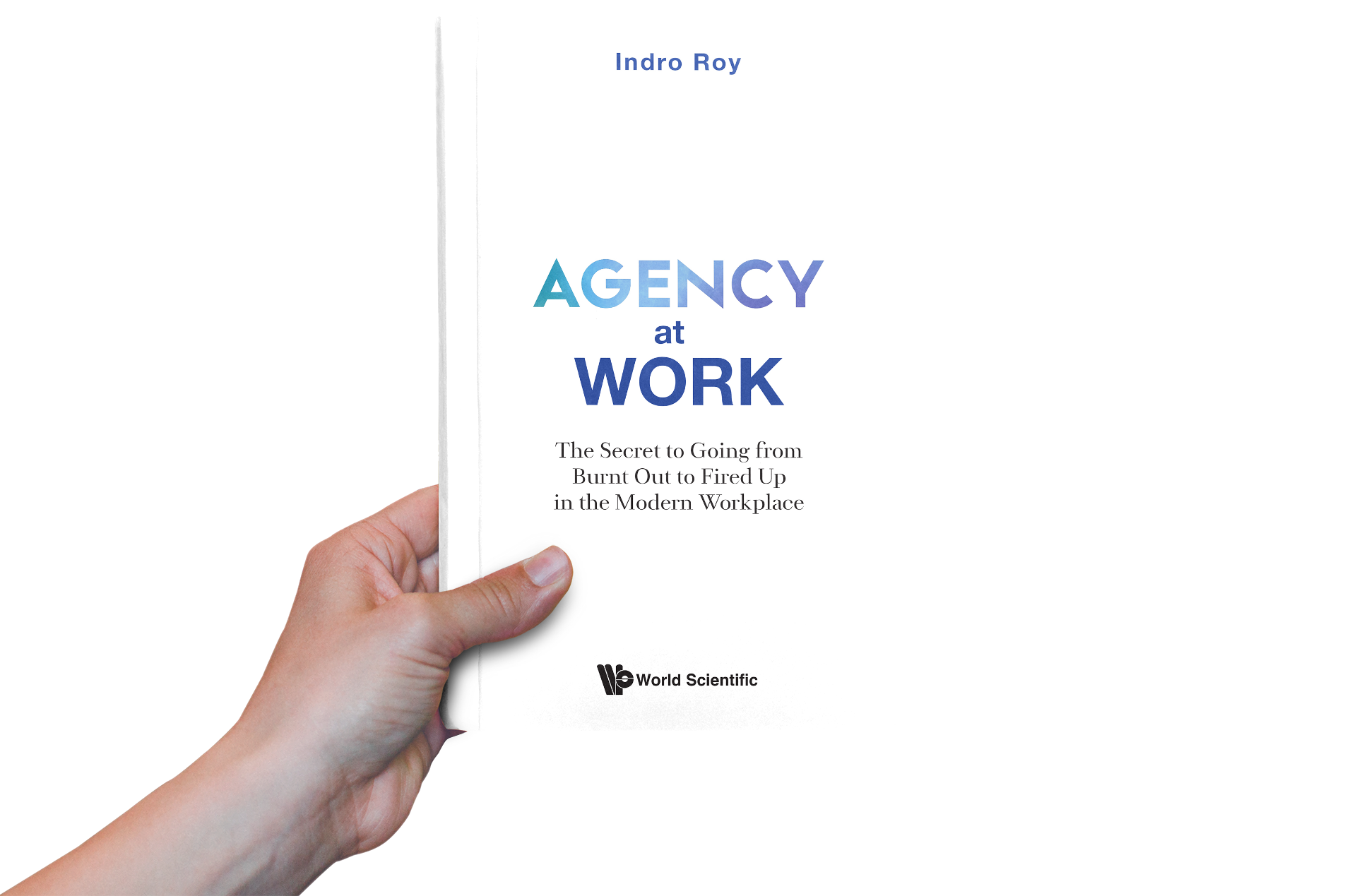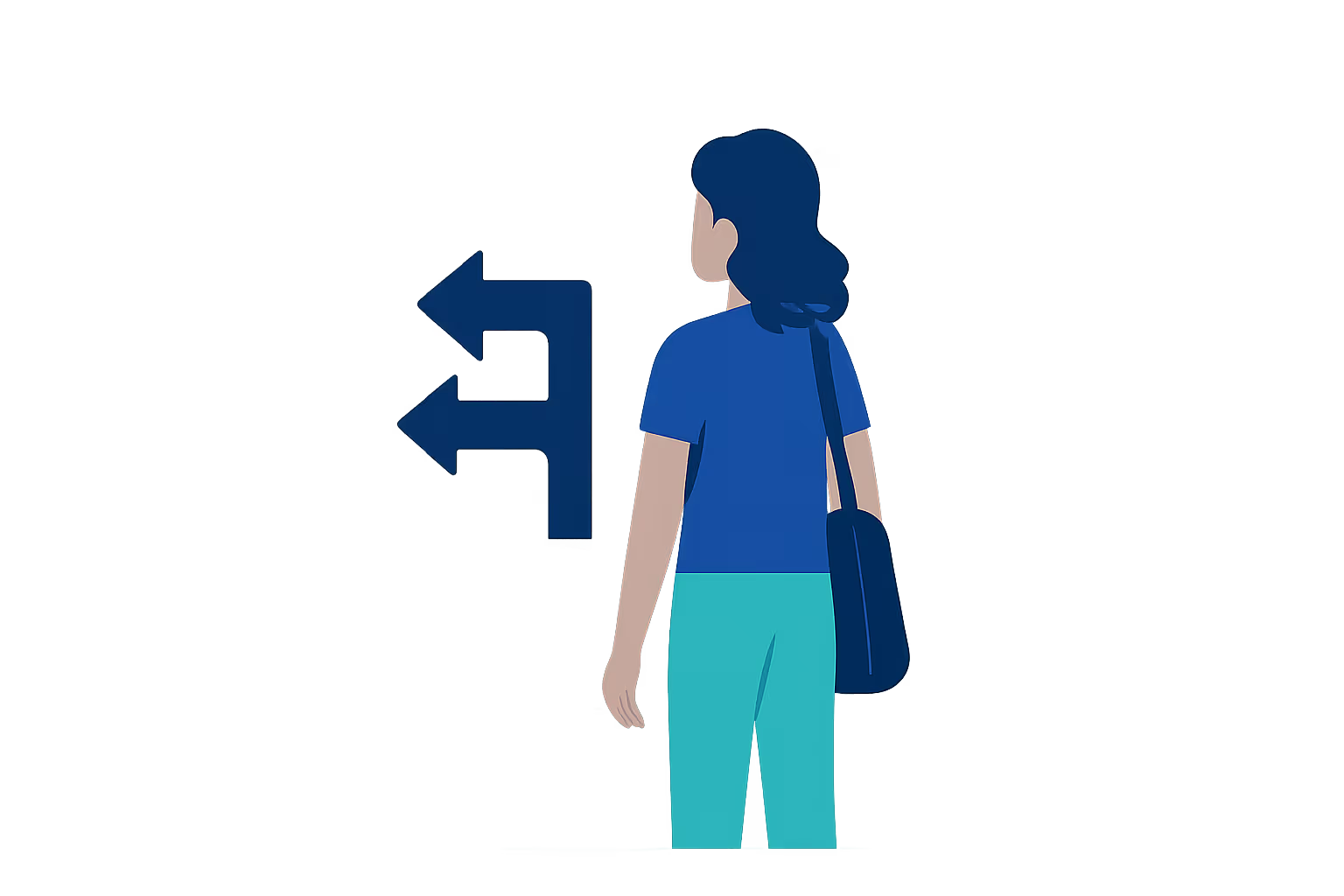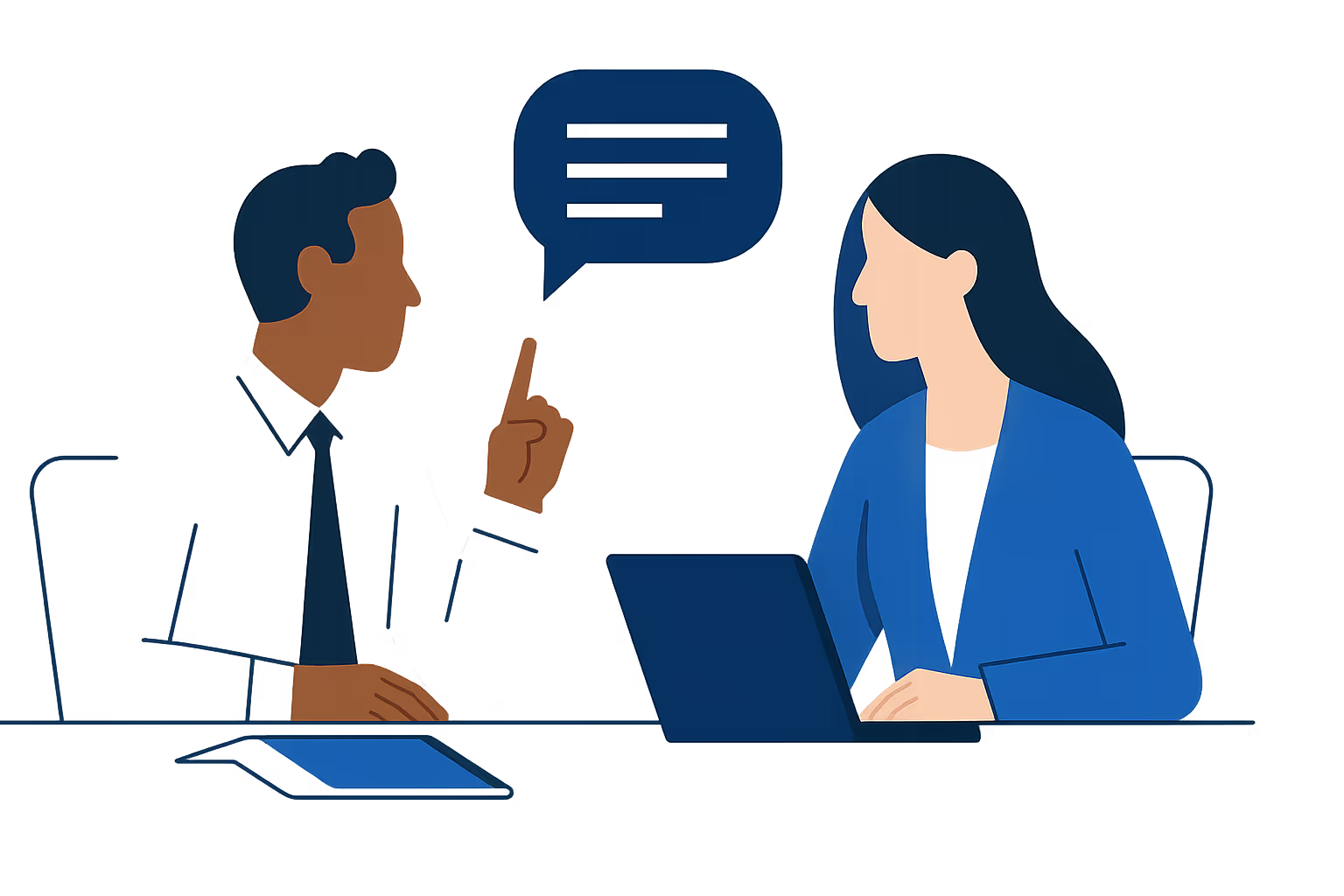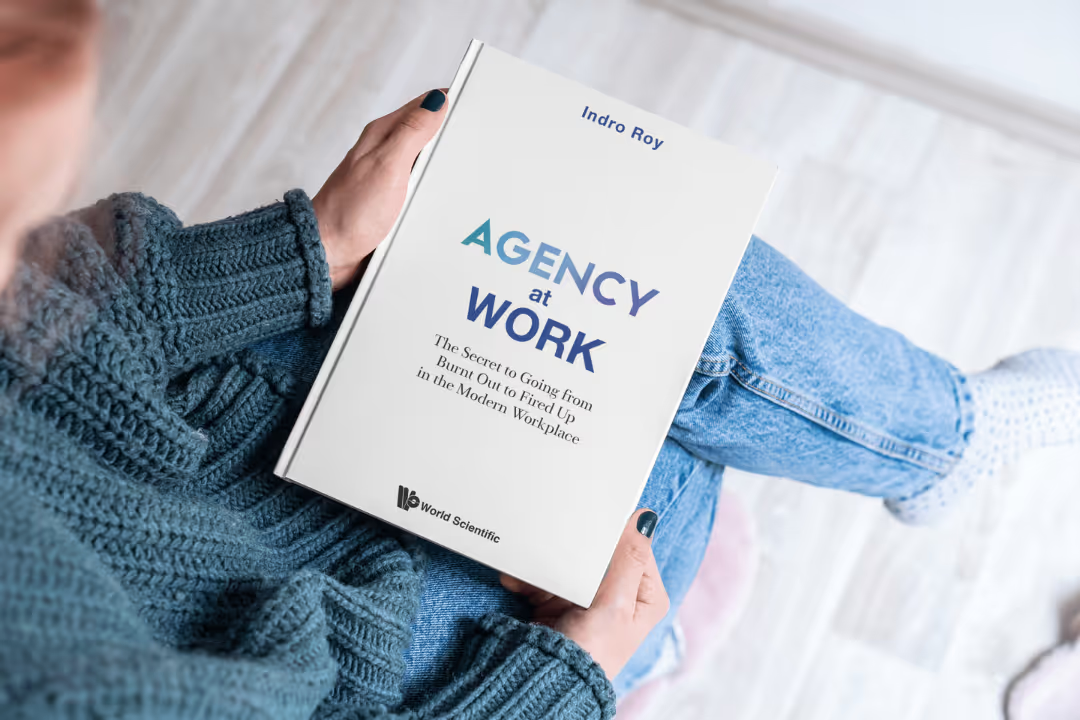A Playbook for the Modern Workplace
When uncertainty is high, agency becomes your lever. Learn how to build it in yourself, your teams, and your organization.

Why This Book Matters
In today’s fast-moving world, thriving at work requires more than productivity hacks. It requires human agency—the ability to think clearly, act with intention, and grow consistently. Agency at Work offers a bold, science-backed framework to help you do just that.
Who Can Benefit from the Insights of Agency at Work

Individuals navigating change
Individuals feeling anxious, overwhelmed, or frustrated at work and looking for a practical and simple way to go from burnt out to fired up

CEOs and executives
Leaders who feel their organization is stuck in gear and want to find an effective way to unlock fresh energy and growth.

HR teams and coaches
People professionals who are looking to transform individuals, teams and organization culture. From struggling to thriving.
What You'll Learn
Unlock your potential with practical insights. This section reveals essential strategies to navigate modern work.
The 3 zones of human agency
10 daily habits to practice
7 questions to measure your agency
Case studies from high-agency individuals
How agency improves mental health and performance

Start Reading – A Free Preview
Get a taste of the book’s jargon-free, lucid writing. Dive into the opening pages and see why readers are calling it timely, practical, and empowering.
The industrial revolution made our muscles redundant. Today, we view our muscles more through the lens of aesthetics than in the context of work. The AI revolution, in particular, the emerging adoption of agentic AI, is rapidly doing the same to our technical knowledge and professional ability. What we will be left with, therefore, is our own human agency.
Human agency is our ability to be self-motivated, self-driven, and self-correcting, in applying our unique human ability to spot and solve everyday problems.
I believe that in parallel with our global efforts to develop and deploy agentic AI (machine agency), we must unlock human agency in ourselves, our teams, and our organizations. This combination will create a period of incredible innovation, growth, and success around us. We will no longer feel anxious about our work, jobs, and careers. We will finally learn to thrive at work.
This belief drew me to my research on agency. I looked for individuals who are perceived to operate with a high level of agency by their peers.
In the process of identifying these individuals, their peers shared the following observations.
They …
“… are always calm and focused, not flustered by the chaos around us.”
“… seem to have time, are never rushed, always open to meet up and discuss things of value.”
“… are quietly confident, always comfortable to try and make something happen.”
“… are infinitely resourceful—within their wide network, they will find a friend who can help.”
“… are learning and growing constantly—even without formal training and development.”
“… seek out feedback—never defensive, always keen to know what can be better next time.”
Over the last 4 years, I interviewed them one by one to find what makes them different.
What I found is extremely encouraging for all of us.
Human agency is not a DNA trait but a skill that can be developed and built. The best part is that it can be built at any organizational level and context. You don’t need to be a senior executive to develop a sense of agency. All you need is the discipline to practice a set of habits every day.
It shows up in three zones:
- Personal agency, or the feeling that you have the steering wheel in your hands at all times.
- Social agency, or the feeling that your network of relationships always has someone who can help.
- Growth agency, or the feeling that you are learning and growing objectively every day.
These zones have specific rules or habits that can be understood and applied straight away—just 10 rules in all.
Finally, the best part of human agency is that it can be measured with seven simple questions.
In other words, what I found is that the few individuals who exhibit high agency around us today carry with them a practical and specific set of ‘instructions’ that we can all learn and leverage in our work every day. This is the key to our ability to thrive in a world of extreme uncertainty and succeed in the context of agentic AI and machine intelligence.
Having applied this playbook to myself, my own team, and several client organizations, I have come to a simple conclusion.
Organizations with high agency leaders and high agency teams are not only going to outperform their competition, they will pull away from the rest of the pack with pace. They will be faster to market with new propositions, significantly more efficient with resources, seamless and calm in adapting to changes in the environment, and operating with a culture of thriving in uncertainty.
This journey is not only actionable but also observable and measurable. Business and human capital leaders can come together and work on this journey that benefits both the business outcomes and the mental health of employees, at the same time.
My hope for the future of work is that, as AI grows and takes over so much of what we consider human work today, we unlock our own agency to flourish alongside these advancements. Let Agency at Work be your playbook, guiding you professionally and personally, and helping you thrive throughout your journey.
Indro
2025
“ We find ourselves in an anxiety pandemic. ”
01 . Overwhelmed, Anxious, and Frustrated
In 2019, I was invited to speak at a conference of the top 200 bankers from a highly respected Swiss bank. It was their year-end celebration, where they showcase their performance and give awards to the best performers, and I was slated to go onstage right after that triumphant moment. As I walked into one of the most expensive hotels in Singapore, I could see that it must have been a good year. The place was decked out like a Chinese wedding, complete with fancy place settings and extravagant flower arrangements on large, round tables. Upbeat music was playing softly in the background. Everyone seemed to be in a good mood.
They wanted me to talk about how leaders could drive innovative business growth, and that is my area of expertise. So, in preparing my talk, I tried to put myself in their shoes.
Asia is home to many of the richest people in the world, and bankers manage that wealth. If I were one of them, I would probably have ten multi-billionaire clients, take home $3–4 million a year, and invest that money well. I would be in my mid-40s and have a family. I would be living comfortably in Singapore, one of the safest and most sophisticated cities in the world. In other words, I’d be sitting pretty—so why should I listen to some consultant who knows nothing about my business?
Good question. I could only come up with one plausible answer: if I showed a genuine interest in them as people, then maybe they would open their ears to me. So, I decided to start the session with a personal question—not my usual tactic, but it was worth a try. I figured that if I could get them to think about how blessed they are and how grateful they must be feeling, I could then turn their minds toward how they could help others.
So, when I got up to the podium, I asked, “In one word, how have you felt at work in the last 2 months?”
Everyone in the audience submitted their responses to the online survey tool, and we watched as the results popped up on the screen.
The top answer was… overwhelmed.
Number two… frustrated.
Number three… anxious.
Confused, I glanced through the rest of the results, searching for any indication of happiness or excitement. Nothing. I asked the audience if they were sure. Heads nodded around the room.
I was stunned. Scratch that—we were all stunned. Who had it better at work than the people in this room? They were high on the food chain, super successful, and well-rewarded for their efforts. And yet, even after their best year ever, they were not content. They were overwhelmed, frustrated, and anxious.
So, we started unpacking their answers. They told me they felt like everything was out of their control—the systems around them had them tied up in knots. They had lost all perspective on their lives. Despite how good their jobs looked on paper, their day-to-day experience was miserable.
This wasn’t just a problem for these people as individuals—it was a problem for the company, too. It is not humanly possible to be overwhelmed and innovative at the same time; creativity and anxiety cannot coexist.
How could the company hope to grow, much less innovate, with its leaders and top performers constantly in this state?
And if these wealthy, senior people felt this way, what about the rest of the workforce?
Like what you’re reading?
What Readers Are Saying
Pushp Gupta
Executive Director, Deloitte
Duleesha K.
APAC Innovation Leader, Deloitte
